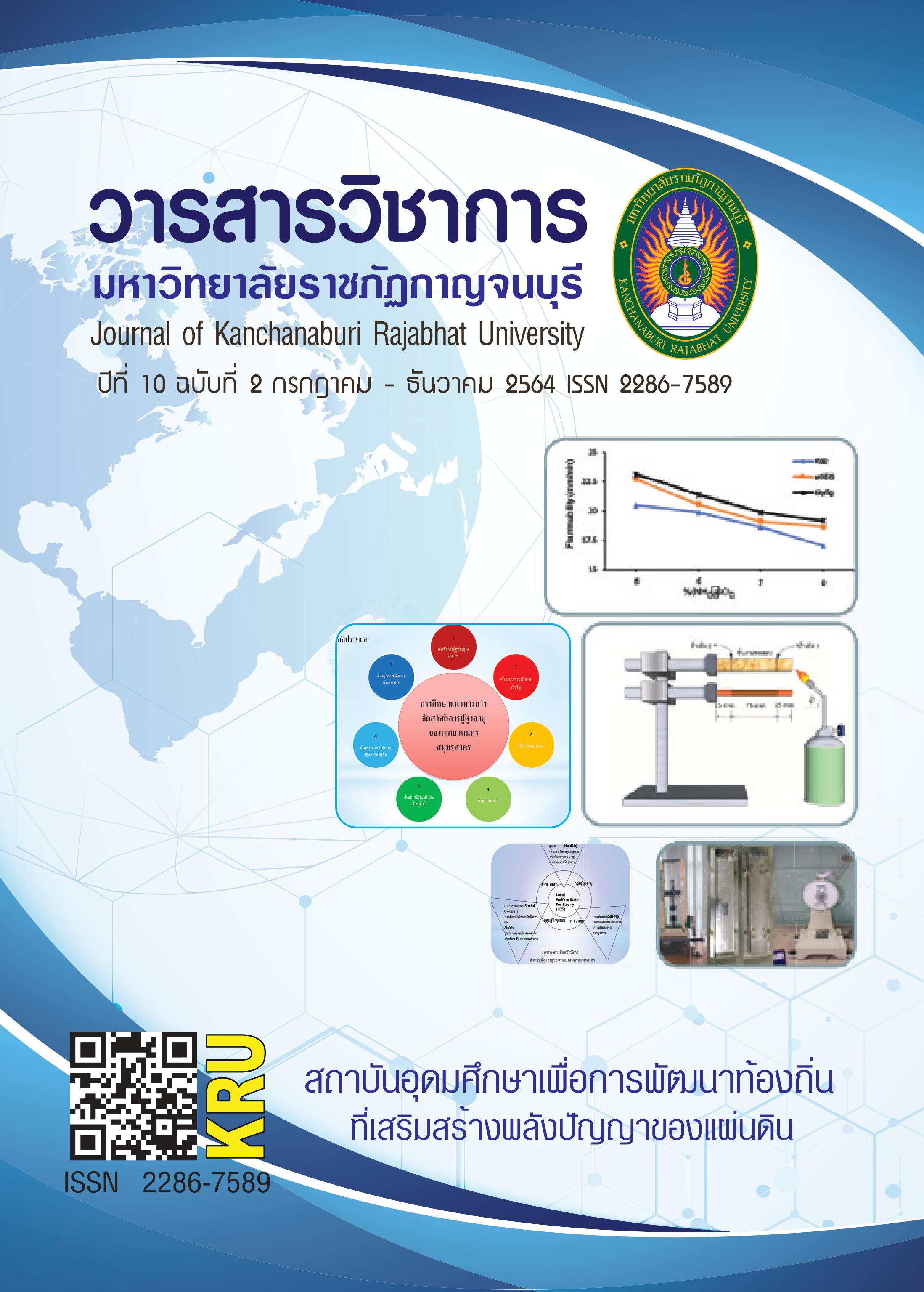GUIDELINES FOR BUILDING AND COMMUNICATING THE CULTURE OF LEARNING CENTERS FOR PROMOTING COMMUNITY-BASED TOURISM
Main Article Content
Abstract
A “Learning Center” in each local area is a collaboration of the community to communicate all patterns of art, culture and wisdom of the community in one place so that those interested can conduct studies and further their research works. Furthermore, a learning center can be developed as a local tourist attraction to add value and generate income for the people in the local community according to the concept of community-based tourism or cultural tourism. This article, therefore, aimed to propose guidelines for building and communicating the culture of the learning center to promote community-based tourism. The study found that the process consisted of searching for community identity to create and communicate the culture of the community learning center, designing the process for building and communicating the community learning center, and managing and evaluating the development of the community learning center to respond to the needs of the target groups comprising community members and tourists.
Article Details
References
กรมส่งเสริมการปกครองท้องถิ่น กระทรวงมหาดไทย. (ม.ป.ป.). มาตรฐานศูนย์การเรียนรู้ชุมชน. ค้นเมื่อ
ตุลาคม 15, 2563, จาก http://www.dla.go.th/work/e_book/eb1/stan17/p0_1.pdf.
กลุ่มงานวิจัยและพัฒนา สถาบันการพัฒนาชุมชน. (2561). ปัจจัยที่มีผลกระทบต่อความสำเร็จในการดำเนินงาน
วิสาหกิจเพื่อสังคมที่มีผลต่อการพัฒนาเศรษฐกิจฐานรากของประเทศ. กรุงเทพฯ: สถาบันการพัฒนาชุมชน.
ณัฐกฤตา สุภาพันธ์. (2556). การสื่อสารวัฒนธรรมไทยผ่านละครโทรทัศน์และนวนิยายแนวย้อนยุค
เรื่องรากนครา. ค้นเมื่อ กรกฎาคม 31, 2563, จาก http://tdc.thailis.or.th/tdc/dccheck.
php?Int_ code=53&RecId =12442 &obj_id=80714&showmenu=no.
นิตยา ประพฤติกิจ. (2554). การเรียนรู้เชิงรุกระดับอุดมศึกษา. วารสารวิชาการ มหาวิทยาลัยราชภัฏเพชรบุรี, 1(2). 74-77.
พิมพันธ์ เดชะคุปต์ และพเยาว์ ยินดีสุข. (2557). การจัดการเรียนรู้ในศตวรรษที่ 21. กรุงเทพฯ: จุฬาลงกรณ์มหาวิทยาลัย.
ยศ สันตสมบัติ. (2559). มนุษย์กับวัฒนธรรม พิมพ์ครั้งที่ 4. กรุงเทพฯ: มหาวิทยาลัยธรรมศาสตร์.
วิยะดา มุ่งผล. (2561). การจัดการเรียนรู้แบบมีส่วนร่วมของชุมชนในการอนุรักษ์และพัฒนา
แหล่งประวัติศาสตร์ท้องถิ่น จังหวัดร้อยเอ็ด. วารสารการวิจัยเพื่อพัฒนาชุมชน, 11(1), 157-165.
ศุภฤกษ์ รักชาติ. (2561). กระแสนิยมไดโนเสาร์ในไทยและแนวทางการส่งเสริมอัตลักษณ์ชุมชน แหล่งขุดค้น
ไดโนเสาร์ในชุมชนภูกุ้มข้าว จังหวัดกาฬสินธุ์. วารสารการวิจัยเพื่อพัฒนาชุมชน, 11(1), 99-115.
สำนักงานพัฒนาชุมชนจังหวัดเชียงราย. (2560). ศูนย์เรียนรู้ชุมชน. ค้นเมื่อ สิงหาคม 25, 2563,
จาก https://chiangrai.cdd.go.th/services/learningcenter.
อัยรดา พรเจริญ และฐิติพร อุ่นใจ. (2560). การจัดการท่องเที่ยวเชิงวัฒนธรรมที่มีผลต่อการมีส่วนร่วมของชุมชน
จังหวัดอุบลราชธานี. วารสารบัณฑิตวิทยาลัยพิชญทรรศน์, 12(2), 171.
อารียา บุญทวี. (2561, มกราคม-มีนาคม). พิพิธภัณฑ์ท้องถิ่นเทพราช: จากแหล่งเรียนรู้วิถีชุมชนสู่แหล่งท่องเที่ยว
เชิงวัฒนธรรม. วารสารการวิจัยเพื่อพัฒนาชุมชน, 11(1), 63-78.
Leowarin S. (2010). Community Learning Centres in Thailand. Journal AED-Adult Education and
Development. ค้นเมื่อ ตุลาคม 15, 2563, จาก https://www.dvv-international.de/en/adult-education-and-development/editions/aed-742010/experiences-from-asia/community-learning-centres-in-thailand.
UNESCO Bangkok. (2017). Community Learning Centres. ค้นเมื่อ ตุลาคม 15, 2563, จาก
https://bangkok.unesco.org/content/community-learning-centres


